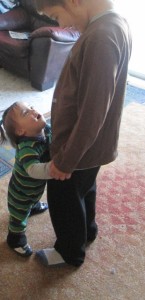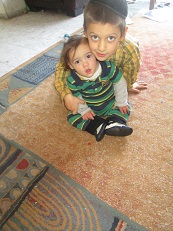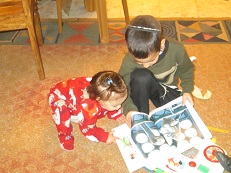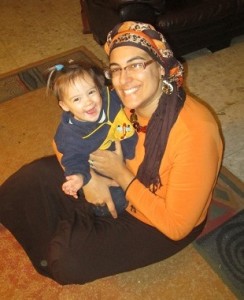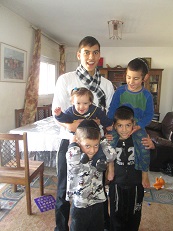![littlechefs[1]](http://avivahwerner.com/wp-content/uploads/2013/12/littlechefs1-150x150.jpg) I was interviewed for an article in Binah Magazine last month about how to introduce a new baby to the family. During the interview, I shared with the writer my strong feelings about being careful not to ask too much of older kids.
I was interviewed for an article in Binah Magazine last month about how to introduce a new baby to the family. During the interview, I shared with the writer my strong feelings about being careful not to ask too much of older kids.
It’s very valuable for kids to be included in the maintenance of the home and to help with younger siblings – it can build a sense of responsibility, competence and teamwork. Our kids need to know that all the family members are part of the same team and everyone works together to make things happen.
At the same time, we can start asking too much and then lose those advantages when the kids become resentful and overburdened. It’s easy to become dependent on the help of our older kids and to ask too much of them. And sometimes mothers start to treat their older kids as if it’s their job to do things that are really her job. I’ve done it at times and I think most of us have. It’s not doing it sometimes that’s a problem.
I don’t have a problem with delegation and asking an older child to help out as long as the child still has most of his free time to use at his discretion. It’s when a child has to routinely give up things that are important to them – time to do her homework, to get together with friends and getting enough sleep and time to renew herself that this reaches an unhealthy tipping point.
I spoke to a father last week who told me that he and his wife work full-time jobs and are starting a new business. He told me that they delegated the basic cleanliness of the home to their kids (four kids ages 7 – 13), and created zones that each child is responsible for a month at a time, at which point they rotate. The youngest child isn’t asked to do that much but they want her to also learn to help out so she’s given a zone as well, albeit much smaller.
I know of another situation in which the oldest daughter isn’t doing well in school because of her excessive home responsibilities that include home management and child care for her siblings. Sometimes parents simply have no idea what’s reasonable to ask of their kids. Your child shouldn’t be running your home on an ongoing basis, no matter how tired you are and how competent they are. They shouldn’t have the primary care and responsibility for their younger siblings.
It’s a balance, no question about it. In both of these situations the kids complain about what they have to do. If kids complain or if it’s more than what their peers are expected to do isn’t what makes the critical difference – most kids aren’t going to be smiling with delight when asked to clear the table or sweep the floor. I’d also rather do something other than that!
Here are some ideas I’ve found helpful for myself in finding that balance.
- I think it goes without saying that help shouldn’t be demanded but requested in a respectful and reasonable way.
- When there’s work to be done, doing it with your kids makes it a totally different experience for them than if you’re consistently sitting around with your feet up while they’re working away.
- If you have several children, make sure each child is pitching in. Don’t leave it for the most competent and agreeable child to pick up the slack for everyone else.
- Set a time limit for how much a child is helping daily, so that they have enough time for homework, friends and extracurricular activities. (I personally try to stay under an hour total but if you have kids in school, then this may be too much.)
- Even if you’re physically out of commission, find a way to show them that you’re emotionally taking responsibility for running the home. When the kids know that you’re still emotionally present even if you’re not doing all the work, it takes an emotional burden off of them.
Please feel free to add your tips and experience!
Avivah
![lady+washing+dishes[1]](http://avivahwerner.com/wp-content/uploads/2013/12/lady+washing+dishes1-150x150.jpg)
![20121120_Damascus_Gate_jeruslem_LARGE[1]](http://avivahwerner.com/wp-content/uploads/2013/12/20121120_Damascus_Gate_jeruslem_LARGE1-150x150.jpg)
